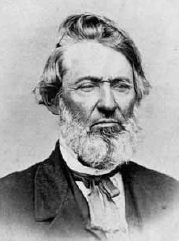Bad Love
An Ex-Mormon Apostle and a Latter-Day Sinner
By Jonathan Shipley

Take a master forger with bombs and a long-lost diary from an early Mormon leader, and you have the makings of an interesting development coming out of Utah. Brent Ashworth, a collector and dealer of rare documents in Provo, discovered the long-lost notebook penned by William McLellin, one of the original members of the Quorum of Twelve Apostles in the Church of Jesus Christ of Latter-Day Saints. That, in itself, is a rich find indeed for religious historians and antiquarian book collectors. The story gets more interesting, however.
Some background: In the 1980s a man named Mark Hofmann was forging documents and selling them for oodles of money to book, manuscript and paper ephemera collectors. Hofmann claimed to have found McLellin’s papers and notebooks, documents Hofmann said contained explosive revelations about the early Mormon church and its founder, Joseph Smith. It was all a sham. He didn’t have McLellin’s notebooks, nor did he know where they were. To cover up the evidence of his forgery schemes, he made homemade bombs (one accidentally detonated in his own car). Two people died. Now Hofmann resides in the Utah State Prison for life without parole. One of the collectors Hofmann hoodwinked before his prison sentence was Brent Ashworth, who spent thousands on Hofmann’s forgeries. But Ashworth recently found and purchased the real McLellin journal from a family on the East coast for an undisclosed sum. The journal has been authenticated by LDS church historians, based on photographs taken in the 1920s.
William Earl McLellin was born in 1806 in Smith County, Tennessee. McLellin joined the Mormons in 1831, keeping a journal almost from the beginning. He rose in the ranks to become one of the so-called “Twelve Apostles,” but he became an outspoken critic of the LDS Church and, to a lesser extent, the Reorganized Church of Jesus Christ of Latter Day Saints (now the Community of Christ). He tried to persuade David Whitmer, one of the three witnesses to the Book of Mormon, to take leadership of a new church more to McLellin’s liking. But Whitmer, who was later excommunicated as a “dissenter,” refused. McLellin, too, was excommunicated for apostasy in 1838, so one might reasonably expect his journal, written long after the fact in 1871 and 1872, to be critical of the church. Strangely, it’s not. Rather, the journal underscores McLellin’s faith in the Book of Mormon and his affection for its founder, the Prophet Joseph Smith.
Of Smith, McLellin writes, “I learned the strength of his mind as to the study and principles of science…And I here say that he had one of the strongest and well-balanced, penetrating and retentive minds of any man with whom I ever formed an acquaintance.” He also recounts a meeting with two of the Book of Mormon witnesses whose lives were threatened by anti-Mormon sentiment. “Said I, ‘Boys, I believe you. I can see no object for you to tell me falsehood now, when our lives are endangered.’”
LDS historians released this statement about Ashworth’s discovery:
“In recent years, a number of historical documents have been found that have added to our understanding of Joseph Smith, the time in which he lived, and the challenges he faced. The Church has welcomed and encouraged the process. While the Church is not pursuing acquisition of the McLellin manuscript, we are pleased the long-lost document has been found.”
Upon McLellin’s excommunication, he is said to have ransacked and robbed Joseph Smith’s home while Smith was being held in jail. If true, no charges were ever filed. A contemporary wrote of this incident: “While Joseph was in prison at Richmond, Mo., Mr. McLellin, who was a large and active man, went to the sheriff and asked for the privilege of flogging the Prophet; permission was granted, on condition that Joseph would fight. The sheriff made McLellin’s earnest request known to Joseph, who consented to the fight, if his irons were taken off. McLellin then refused to fight, unless he could have a club, to which Joseph was perfectly willing; but the sheriff would not allow them to fight on such unequal terms.”
Latter-Day Saint rare book collectors had been searching for the McLellin volume for decades. For years, the only evidence that it even existed were the two photographs taken of journal entries in the 1920s. Along with McLellin’s other writings, the journal was given to a family friend when McLellin died in 1883. McLellin’s friend sold some of this material 25 years later to the LDS Church for a sum total of $50. The rest was forgotten about, until Hofmann appeared saying he had it.
Rare document dealer Brent Ashworth says he plans to publish the notebook. Click here for photos of dealer Brent Ashworth and the McLellin Journal.







